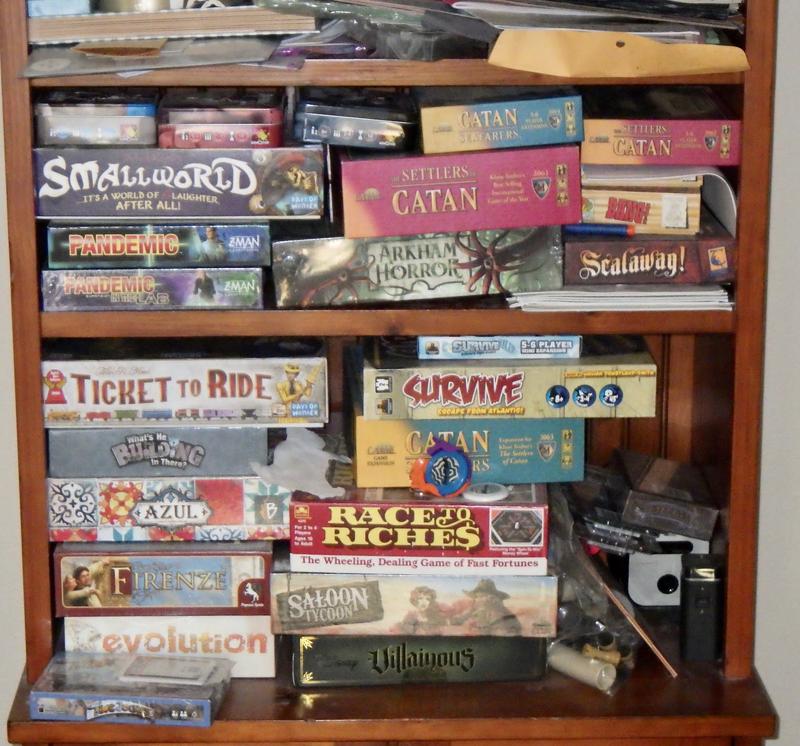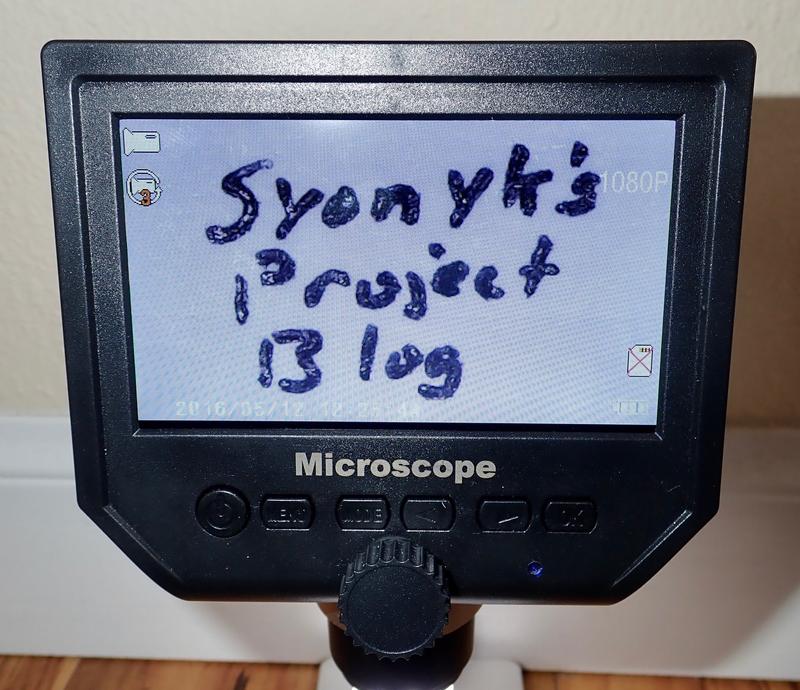What’s a good way to spend your free time? Gaming with friends - but, as you might expect from this blog, I’m not a huge fan of modern computer games. Analog games are the way to go, both board and tabletop. That’s where the bulk of my gaming hours go, and I like it that way.

I’d guess a good number of my readers also game - so let’s talk about the joys of analog gaming!
Analog Gaming: Better Than Video!
Every now and then, people ask what sort of games I play. There seems to be a general assumption that since I’m active in technical realms, I likely play lots of games - and that’s correct. I don’t play much in the way of computer or console games.
I used to play more computer games when I was younger (from 8086 on through the Pentium 3 era), but as I got older, the appeal dropped and the time I was willing to spend in someone else’s synthetic digital worlds dropped as well. There are certainly some guided tours of a world that are excellent,
I’ve played a few digital games in the last decade or so, but they do tend to be more “sandbox” games - Minecraft and Kerbal Space Program (which is epically awesome) are good fun in there. I will say that the 2016 Doom holds up to the spirit of the original (huge levels, epic chaos, overpowered weapons and a ton of enemies), but otherwise, I just don’t play modern video games. The most recent consoles I’ve owned were a PS2 and a Wii - and that was a decade ago.
What I do play extensively are “analog” games - board games and tabletop games! These are social games that involve other people around, and I greatly enjoy them for a wide variety of reasons!
Face to Face Social Interaction
One of the biggest advantages of this sort of gaming is that it requires being with other people - in person, face to face. In today’s modern, somewhat disconnected world, this is rarer than it used to be, which makes it enjoyable. Yes, you have to go to where people are - but it’s worth it. Make it an evening, cook dinner, play games! If kids are involved, either shift earlier in the day or work it out so the ones with the earliest bedtime can go to bed where they are. Some people are lucky and can just transport sleeping kids without trouble.

I try to avoid too much in the way of cell phones or tablets at the game table, though an iPad with an extra copy of the game manual is often handy. If you’ve got access to a decent printer, a binder or two with extra copies of the rules helps a lot as well. If multiple people can access the rules, this speeds setup, getting people up to speed with the game, and searching for “… wait, how on earth do you handle this weird corner case?” answers. You can tell which games have been extensively playtested by which ones cover all the oddball cases that come up in play. It’s also interesting that most people have some sort of house rules for the corner cases - and those rules may or may not match the manual (“Two of anything for one of the item listed” on a Catan port is the weirdest I’ve seen so far). I’m also not going to admit how many times we’ve played a couple games with some epic misunderstandings of the rules going on. Have plenty of copies of the manual and you’ll be better off!
D&D type tabletop games are even more fun in person, because the group dynamics can get… very interesting. If you’ve got some good role players in the group, discussions and decision making can get very heated, but (ideally) everyone recognizes it’s just in the game and kicks back with a beer afterwards. Try to set a good environment - it doesn’t sound like it matters, but having a dim, smoke filled room for gaming is just a lot more enjoyable than a bright, florescent lit game store room. You don’t actually need that much light to play once your eyes adjust, and gaming with the proper ambiance is just great fun.

Low Energy Games for a Low Energy Future
One of the things I’ve talked about on this blog in the past is my predictions for the long term future - that we’re likely to be heading down the long slow decline of energy as we continue past peak oil and the various other headwinds against our modern technological civilization. Energy will almost certainly get either more expensive or less reliable (yes, I know about solar - I live with an off grid office, recall? It doesn’t allow for limitless energy on demand without an awful lot of other expensive stuff attached and that still won’t get through winter without a generator) - and lower energy ways to entertain people are always welcome.
You can play all of these games with nothing more than a flashlight or candle if needed - a couple LEDs using a watt or two is more than enough to game deep into a winter’s night.
Beyond just needing less energy, board games are “long form entertainment” - a good round can take hours, depending on the game, of just playing, talking, smack talking, etc. Throw in a break for dinner, a break for some beverages, and you’ve got a great afternoon and evening with friends that doesn’t require much beyond a candle.
They’re great for camping trips too. Sitting under the stars on a calm night with a lantern on the table and a campfire going? It doesn’t get much better.
Besides - board games (and tabletop games) don’t need “updates.” I understand from some less-frequent console players that the process of attempting to play a game can be quite frustrating (especially with a slower internet connection) - power the console on, and then wait endlessly as the console updates, then the game updates, then… who knows what else updates, and it’s time for bed. Board game updates, if they exist, are typically a PDF file you download and print - but any good game will be playable out of the box. You just can’t patch them like you can a digital game. And, yes, there are bad board games, but they can easily be donated to entertain someone else who tries to figure out the rules. They’re perfect for White Elephant gift exchanges.
And a board game may as well be a durable good. Treated properly, they’ll last most of a lifetime - and in almost all cases, it’s easy enough to replace worn out parts with something hand-made. There’s no problem hand-carving a game of Settlers, if you feel like it - you can buy 3D printed tiles on eBay if you want something a bit more physical. You could just as easily make your own tiles from wood, or with a welder. Steel Settlers tiles should last a long time. In a long decline future, nobody is going to complain if you replicate a board game with folk knowledge.
Good Board Games
If you already have a good board game collection - you’re set! Just find ways to invite people over and play more.
If not, there are some pretty standard games that are easy to play - and worth picking up if you don’t have some of them already.
Settlers of Catan (BGG) (eBay): This is a perfect intro game to people who haven’t played much beyond the standard 1960s Monopoly, Life, Scrabble, etc. It’s easy to learn, complex to master, and the dice introduce more than enough randomness that an “awful” starting position selection can, at least on occasion, end up with enough resources to win.
Ticket to Ride (any variant) (BGG) (eBay): Stealth Geography. You’ll teach kids all sorts of things about places they didn’t know exist. It’s easy to pick up, though a bit harsh on newer players at times, especially if they are the only ones not playing aggressively. Still, trains!
Pandemic (BGG) (eBay): One of the increasing number of “Players vs the board” games in which you’re not competing against each other - you’re playing together against the game mechanics. For casual gamers, this is an awesome game, because you all win or lose together.
Then, of course, we’ve got some favorites that nobody else has ever heard of.
Azul (BGG) (eBay ): Pattern making with tiles sounds simple - and the first few rounds certainly are. Then it gets complex.
Firenze (BGG) (eBay ) : Tower building in ancient Italy. Way harder than it sounds, way more fun than you’d believe!
What’s He Building In There? (BGG) (eBay ) The joys of being a mad scientist. Will your doomsday contraption be exquisite, or will it be held together with duct tape? Will you escape in a gleaming jewel of a getaway machine, or will it barely run? Will you be married to a high society socialite with an ostrich as your pet, or will you be in your rented warehouse, skipping rent, barely being known? I love this game, though it is insanely detail oriented and you have to be planning several moves ahead. It’s epic!
DM Tips & Tricks From the Years
Moving from board games to tabletop games…

While I’ve never actually been a DM (Dungeon Master - the guy running the game), I’ve played with quite a few over the years. I’ve seen things that work very well, and I’ve seen things that work very poorly. As I don’t think any of the DMs consider these trade secrets or the like…
One thing that works very poorly is to have a weak DM and a very strong willed player in the group (probably someone who really knows the rules and can argue for their particular interpretation). In this situation, I’ve seen the player get excessively creative and more or less insist that things will go their way - and if the DM doesn’t have the knowledge or fortitude to resist, it’s likely that the player will get their way. This is fine - for a while. But it’s vital that if the DM allows this, they’re racking up some sort of karma points for that particular player that will come back and bite them in the behind - perhaps fatally.
This might take the form of the local law enforcement deciding that someone is exceedingly and suddenly unwelcome, or a criminal group they’re interfering with coming for their head. Depending on how it’s spun, the rest of the party may or may not feel particularly motivated to defend that particular party member - especially if it’s pretty clear that either the particular member suffers, or the whole party dies. Make it interesting…
On the other hand, something I’ve seen that’s exceptionally useful is when a DM manages to make private rolls and insights actually private! One problem in a group setting with dice is meta-gaming. In general, people know how they (and everyone else) rolled - and have a general insight into how that translates to truth. For most rolls, knowing how you rolled doesn’t make that big a difference - but for things like deciding if someone is telling the truth, you might meta-game a tiny bit.
Say you’re wondering if some particular non-player character is telling the truth or not. You roll, get a 2, and the DM tells you that your character thinks they’re being as truthful as truthful could possibly be. Do you believe this? Or do you guess, probably correctly, that with a 2, your character might not be judging properly?
Or, worse, you’ve got two members of the party at odds. One is rolling to convince the other person that something they say is truthful - and the other person is rolling to detect if they are telling the truth or not. How the dice fall impacts how this works - but everyone typically knows how the dice fell.

Instead, the DM can make use of a stack of index cards, a pen, and their DM Cardboard of Shielding. You don’t roll for this sort of stuff - the DM does. The DM writes the results of the dice rolls on separate cards and hands them to the particular players to read. They can share with the group or not (and if they do, the results of multiple people are likely to conflict), but it makes things far more interesting as a player. I’m 100% certain that a salesman is telling the biggest whopper to ever flop - and the guy next to me is absolutely sure the guy selling potions is as truthful as Mr. Rogers about the rarity of this particular potion and the corresponding price. It makes things far more interesting than knowing which one of us rolled a natural 20!
Tech in D&D
Over the years, I’ve played under quite a few “tech levels” of D&D. I’ve played purely analog games (verbally described maps from the DM, “sheets of notebook paper” for the player sheets), I’ve played some pretty tech-heavy games (automatic character sheet generation, digital maps), and I’ve played blends in between.
There’s a place for tech in tabletop gaming - but I think it’s very, very limited, and easily can grow to overshadow the rest of the game if left unchecked.
That said, I’ve seen tech used wonderfully for handling maps - and if you’ve got the ability, it makes for an excellent addition to any good tabletop session.
For those unfamiliar, tabletop gaming typically involves maps - typically either terrain or buildings. They’ll have some sort of grid/hex for distance indications (different players can move at different speeds), they’ll have various features, and, importantly, they almost always have the “fog of war.” You don’t know what you haven’t seen. Sometimes, this is handled by only drawing out the map that players have seen, and sometimes, this is handled with a bit more technology.
My current group plays around a table with a TV buried in it (under a sheet of plexiglass - useful for protecting the TV as well as using a dry erase marker to make additional markings when needed). The DM sets up maps beforehand in Gimp with a black layer over them. As we explore, the black layer gets erased to show us what we “see” - so we literally have no idea where the haunted house ends or what’s beyond. If we explore around the outside first, we’ll see the outline of the house and have a good feel for the dimensions, and maybe we’ll peek in some windows and see a few rooms, but we don’t know everything until we’ve explored it.

Despite that, the rest of the game is absolutely analog. Dice are rolled - by hand. Player sheets are kept - by hand. With the exception of the mapping, we just don’t use that much technology to play. It interferes with the game, and it interferes with the interactions between people.
Does this mean that sometimes people miss things when leveling up? It does - but when they discover it, well, they’re not going to soon forget that their Lay on Hands spell levels as they do!
If you are playing with paper character sheets, do yourself (and everyone else) a favor and buy some good erasers. You use them a ton, and the difference in paper life between a cheap abrasive eraser and a good plastic eraser is measured in many levels. I use the Staedtler Mars Plastic erasers, and they’re just entirely awesome for something like this. Get them locally, or on eBay.

Final Thoughts: Go Play Analog!
I do expect most readers of my blog play (and enjoy) analog games. But if you’ve not tried it, and especially if you’re a fan of the digital games - go play with other people in person!
One of the saddest shirts I’ve seen recently is “I must go! The video games need me!” I saw this at a fair (on someone who looked genuinely unhappy to be there), and it more or less covered my complaints about modern digital games. They’re generally played alone, and they take the place of actual human interaction. Yes, I know, some involve mediated human interaction, but that’s not at all the same as playing over a table, in person, with other people. Play games with people. Don’t play in synthetic worlds designed by other people to be addictive.
I’ve been busy lately with family stuff (fairs, camping, etc - just enjoying the summer), so two weeks from now should be back to solar/EVs/random USB charging gizmos/something along those lines.
Who plays what? I’m certain I’ve missed some amazing games I should own - let me know in the comments!
Comments
Comments are handled on my Discourse forum - you'll need to create an account there to post comments.If you've found this post useful, insightful, or informative, why not support me on Ko-fi? And if you'd like to be notified of new posts (I post every two weeks), you can follow my blog via email! Of course, if you like RSS, I support that too.






